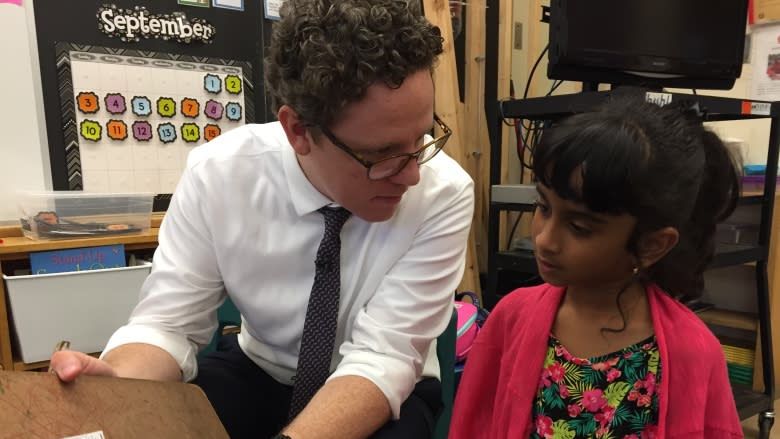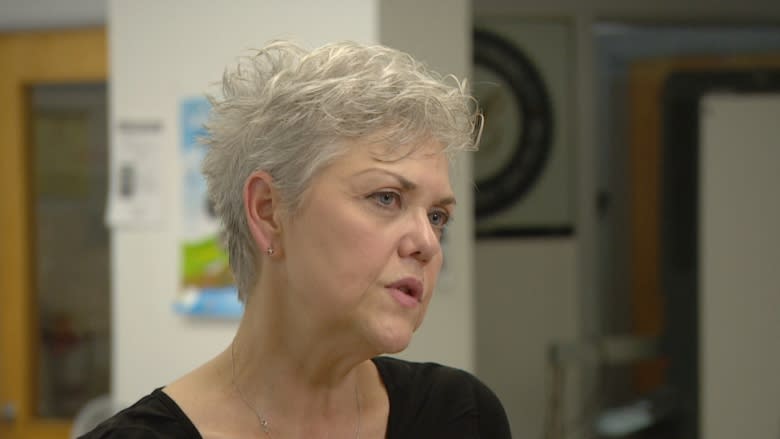York and Halton students score highest in EQAO testing among GTA school boards
There's both good news and bad news for GTA students, parents and educators in the latest numbers from Ontario's Education Quality and Accountability Office (EQAO).
The good news? GTA students mostly ranked above the provincial average for EQAO testing in Grades 3 and 6.
The bad news? Math scores have shown little improvement year-over-year and remain low across all boards, with both public and Catholic Peel school boards ranking lower than average. Less than half of Peel's Grade 6 students failed to meet provincial standards, according to the latest results released on Wednesday.
"As with most other school boards in Ontario, math results have reduced from previous years," said a release issued by the Peel District School Board. "We will continue our focus on mathematics to help raise scores that have declined steadily over the last five years, both provincially and within the Peel board."
In other areas, such as reading and writing, Peel students scored just slightly above the provincial average.
The Dufferin-Peel Catholic District School Board (DPCDSB) also scored below the Grade 6 math average, with only 49 per cent of its students meeting the provincial standard — the first time the board has been below the provincial average in five years.
"We are working on a detailed analysis of these results as well as an extensive review of the comprehensive math strategy intended to ensure that resources are allocated to support the success of all students," said Bruce Campbell of the DPCDSB.
Math coaches helping teachers
The Toronto District School Board (TDSB), which scored just slightly above average, has recognized the need for math help and hired math trainers — not for students, but for teachers.
"We have within the TDSB, Kindergarten to Grade 12, coaches that help deliver curriculum," said Manon Gardner, executive superintendent at the TDSB.
The province has spearheaded a similar program, part of its three-year renewed math strategy. For the TDSB, this meant funding for five math coaches who split their time between 24 elementary schools, which were designated as high needs. The board has also mandated and protected 300 minutes of weekly teaching time for math, explained Gardner.
One school where the program has been implemented has seen math scores go up 29 per cent year-over-year in Grade 3, a testament to the program's success, said Dave Leavitt, a former math coach at H.A. Halbert Junior Public School in Scarborough.
The Grade 6 average at the school remains well below the provincial average, with only 33 per cent of students meeting the provincial standard for the 2016-2017 school year. That being said, it has still improved over the 2015-2016 year, when only 18 per cent of Grade 6 students met the standard.
As a math coach, Leavitt describes his job as working with teachers and students — but mostly with educators to help develop math programs and make math more relevant and contextual for students to understand.
"Most of us haven't done math since high school, and some of us are a little well past high school," said Leavitt. "It's been a while since we've had to flex that kind of muscle."
"We did a lot of math where it was computation and we focused on speed … but that doesn't necessarily promote understanding," he explained, adding that the way math was taught is not necessarily the "freshest approach."
Curriculum overhaul coming
An even bigger overhaul is coming to the math curriculum according to the province, which announced a major "curriculum refresh" earlier this month.
That refresh is part of a larger modernization plan, which will include revisiting and updating provincial assessment tools, including EQAO testing itself.
Premier Kathleen Wynne clarified that looking at the math program and curriculum did not mean the province was switching gears on the $60-million math-renewal strategy.
"We made changes just last year, they haven't had a long time to set. But we do need to look at whether we're doing everything that we can to make sure kids are getting those math skills," Wynne explained in early September.
'Math is everywhere'
Both Leavitt and Gardner want people to understand that you can't escape learning math.
"Math, like languages, is lived. We often hear people say, 'I'm not a math person,' but we are," quipped Leavitt.
"If you drove a car, if you plan dinner, if you walk down the street … you use math every day," he added. "Understanding that math is a learned process, we go away from an 'I'm not,' to an 'I can' [mentality]."
Gardner echoed Leavitt's sentiment, saying the the TDSB will work closely with the Ministry of Education to transform the curriculum to better focus on daily life and financial literacy.
"We have to get people to understand that math is everywhere."
To see how your local school scored on EQAO testing, click here.




